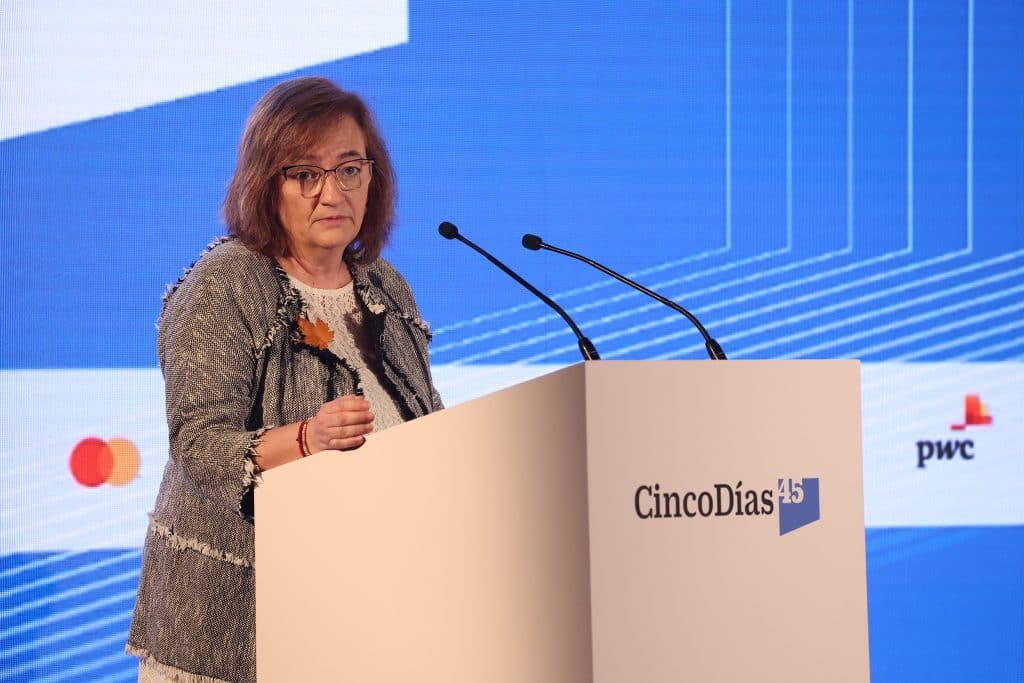
The president of the Independent Authority for Fiscal Responsibility (AIReF), Cristina Herrero, today took part in the conference organised by the business newspaper Cinco Días to commemorate its 45th anniversary. Cristina Herrero took part in the session devoted to ‘A new environment for recovery and to boost growth’, in which she highlighted the need for a national agreement to design a medium-term fiscal strategy with a forward-looking vision to ensure the sustainability of General Government.
Cristina Herrero began her speech by congratulating Cinco Días and stressing how important it is for any society to have access to rigorous and qualified economic information. She also recalled that AIReF is also celebrating its anniversary, as it was set up in 2013, and she took the opportunity to highlight the key role played by the media over the last ten years in helping to publicise the work of AIReF, an institution with a mission as complex as fiscal supervision. According to Cristina Herrero, the media have been essential in publicising AIReF’s work and raising the reputational impact of the actions of the General Government.
The president pointed out that the new economic environment that gives its name to the second day of the Cinco Días anniversary will have to be framed within the new framework of European fiscal governance, which is expected to allow differentiated paths for each country, with 4 or 7-year fiscal plans aimed at sustainability. This will be a simpler framework, which will give more initiative to countries in defining the fiscal path.
In this respect, Cristina Herrero recalled that AIReF has been recommending for some time now that a medium-term fiscal strategy be put in place for all General Government. The definition of this forward-looking strategy, in her words, is now an unavoidable task and its credibility and viability will be greater if it is based on objective analyses of the situation and prospects of each level of government and if the commitment involves all the General Government.
In this respect, the president highlighted the role that AIReF can play in the new framework and stressed the need to have a country agreement that generates broad consensus and ensures coordination between different levels of government. In her view, the medium-term vision and the need for planning extends to the General Government, as the success of the whole will require the success of the parts.
In addition, she referred to the importance of also modifying the national fiscal framework to adapt it to the new European framework and update those aspects that have been shown not to work, such as the system for distributing objectives, the lack of detailed regulation of the spending rule or the lack of use of the coordinating potential of the Fiscal and Financial Policy Council and the National Commission of the Local Administration.
Finally, she recalled that the future framework will also focus on the quality of public finances, and stressed the need for further progress in making public policies subject to systematic evaluation so that decisions are not improvised. Although important steps have been taken, we must continue to move forward without fear of evaluation to identify areas for improvement.






